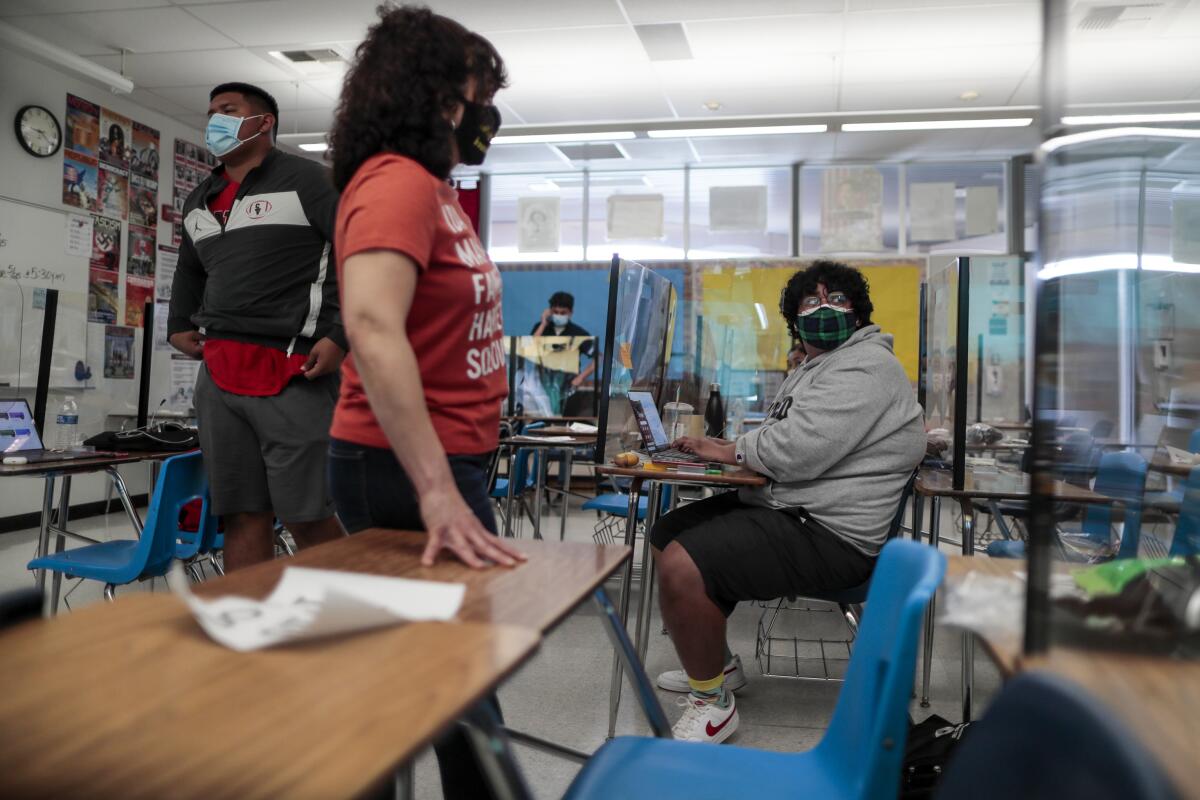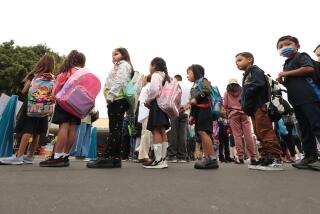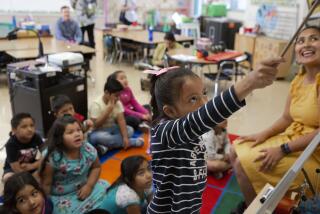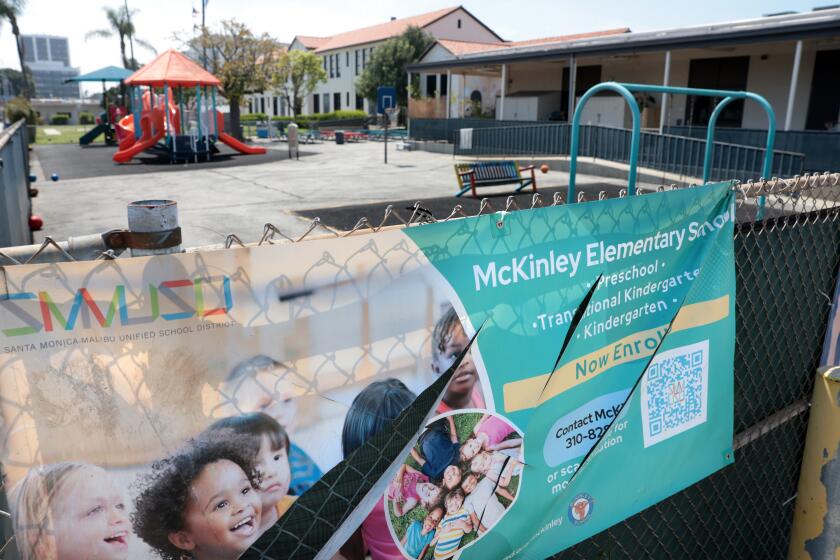California parents want to keep online learning as a fall option, poll finds

Although California parents strongly favor full campus reopenings in the fall, they want school districts to offer online learning options, according to a statewide survey that indicates uncertainties ahead for in-person attendance.
More than two-thirds of parents agree that eligible California students should be required to get a COVID-19 vaccine once it has been approved by the Food and Drug Administration, with exceptions for medical reasons, according to the survey released Thursday by USC and the Policy Analysis for California Education.
“We’re in a moment of time of uncertainty,” said Julie Marsh, coauthor of the study and a USC professor of education policy. A coronavirus variant and unvaccinated children are contributing factors to an ever-changing set of circumstances, and people want to keep their options open, she added.
The survey found that more than 80% of Californian parents and voters support an in-person return five days a week for K-12 students for the 2021-22 school year. And 71% of parents agreed that online learning should remain an option.
In late May, USC and PACE researchers surveyed 2,000 registered California voters, including an oversample of 500 parents with children under the age of 18 at home. The survey covered a range of issues and gauged voter worries about the pandemic’s toll on the state’s 6 million students, opinions on teaching about racism and how to best support students who have fallen behind academically.
Those surveyed expressed worry over the pandemic’s impact on learning for K-12 students.
Voter said they are most concerned about K-12 students who have fallen behind academically. Respondents also expressed concern for students with special needs, those who are English learners and those in need of emotional and mental health support. Nearly 90% said they favor extra help for students through summer school, intensive tutoring and after-school activities.
Whether all students return to school campuses in large numbers in the fall remains to be seen. Some California parents reported that their children’s education improved with online learning, and some students thrived. California legislators are moving forward with a bill that will require school districts to offer online independent study for students whose health may be put at risk by in-person instruction. It was previously offered by districts on a voluntary basis before the pandemic, but legislators are aiming to make it a requirement for the next school year.
Several other factors could contribute to parents keeping their students home, Marsh said, including concerns over bullying, racism and fears of a child infecting a household. In June, a survey found that 43% of Los Angeles parents of Black students cited concerns about bullying and racism in choosing to keep their kids home when schools reopened in the spring.
For Black and Latino families, the concern of spreading the virus is very real: With multigenerational families squeezed into housing and members who have been on the front lines as “essential” workers, they are among the communities hardest hit.
Children under 12 have not yet been authorized to receive vaccinations. The survey question on vaccines asked respondents whether they agreed or strongly disagreed: “If a vaccine against COVID-19 is approved by the U.S. Food and Drug Administration (FDA) for school-age children, it should be required for all students in California schools, with allowable medical exemptions such as those for students who are allergic to components of the vaccine.”
In May, the Los Angeles Unified School District, the second largest in the country, announced a plan to provide families the choice between traditional, in-person schooling or a remote option that will be mostly online next school year.
“I wouldn’t blame families who are disproportionately impacted by the virus for considering an online option in the fall,” Marsh said.
The survey showed that 78% of respondents believe the state has become more politically divided. And when it comes to education issues, the divide could have implications at the local level when school boards decide how best to spend funding, Marsh said.
Both Democrats and Republicans listed reducing gun violence in schools as their top educational priority.
But more than 80% of Democrats surveyed agreed that schools should spend more time teaching about racism and inequality, compared with 54% of Republicans. Overall, however, 72% of parents support grade-appropriate lessons about racism and inequality being taught.
But there are some places where Democrats and Republicans agree: Voters from both political parties strongly support increased services for students when they return in the fall.
“There’s a kind of hopefulness here on what the public wants” despite differing political ideology, Marsh said.
More to Read
Start your day right
Sign up for Essential California for news, features and recommendations from the L.A. Times and beyond in your inbox six days a week.
You may occasionally receive promotional content from the Los Angeles Times.







